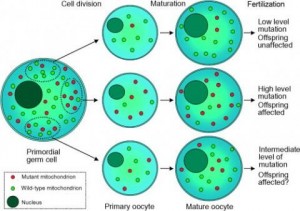Next Generation Sequencing (NGS) is a relatively new method that gives more information compared to traditional Sanger sequencing. To perform NGS, samples must first go through a process called library preparation. Currently, our lab is collaborating with Promega to evaluate their new mitochondria DNA library preparation kit called the 10-Plex PowerSeq Prototype kit. This project first focuses on the non-proofreading polymerase supplied by the kit for initial amplification and compares it to a proofreading polymerase. The project will also evaluate the kit’s sensitivity using low DNA copy samples like hair and bone.
Heteroplasmy Drift in Hair
2015-DN-BX-K025
Mutations in mtDNA typically pass through a heteroplasmic state, which is the presence of more than one mtDNA variant in a cell or tissue. Somatic mutations may result in varying levels of heteroplasmy within and between tissue types. Possibly due to the clonal nature of hair follicles, hair cells can show heteroplasmy between and within individual hair shafts from one individual. Follicles form from small, seemingly random, clusters of cells in a clonal-like manner creating a bottleneck effect. This NIJ funded project focuses on characterizing the heteroplasmy drift across individual scalps. An example of findings associated with the 10-plex kit can be found in our publication in Forensic Science International: Genetics (Gallimore et al., 2018).

